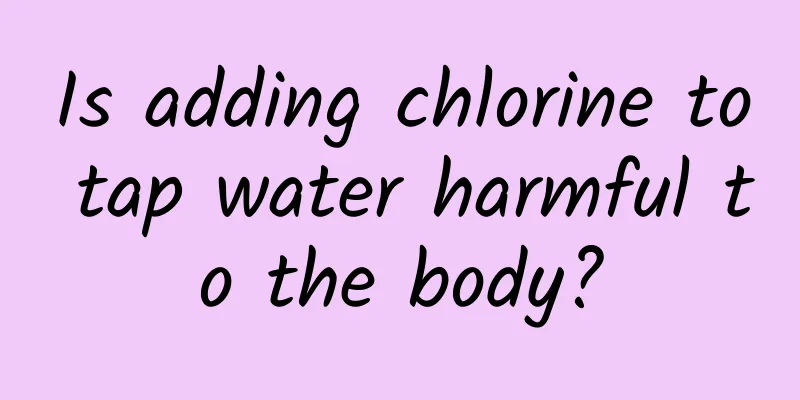Is adding chlorine to tap water harmful to the body?

|
We all know that chlorine is a toxic gas with a strong pungent odor. We also know that tap water is generally disinfected with chlorine. So, why do we need to add chlorine to good tap water? Is it harmful to the body after adding chlorine? It takes a long time and more than ten kilometers of pipelines for tap water to reach residents from the source. In this process, the water source may be polluted. If it is not treated in any way, the water at the end may contain impurities, harmful microorganisms, etc., which will affect the safety of water use. In response to this situation, the current universal solution in the world is to add chlorine. When chlorine gas is soaked into water, it will turn into hypochlorous acid, which kills bacteria and pathogenic microorganisms in the water. The chlorine smell in tap water is not caused by excessive addition of chlorine. The chlorine smell we smell in the tap water comes from the residual chlorine in the water. A certain amount of residual chlorine must be ensured in drinking water. This residual chlorine can achieve the effect of continuous disinfection and ensure the safety of our water use. Is adding chlorine to tap water harmful to the body? First of all, according to the national "Standards for Drinking Water Hygiene", the residual chlorine in tap water leaving the factory is between 0.3-4 mg/L, and the residual chlorine at the end of the pipeline must not be less than 0.05 mg/L, in order to ensure continuous sterilization and disinfection and ensure water quality safety. The residual chlorine in the water leaving the factory of each water plant of Beijing Water Group is controlled between 0.3-0.9 mg/L, and the residual chlorine at the end of the pipeline is greater than or equal to 0.05 mg/L. It is normal for tap water to have a slight chlorine taste and it does not affect health at all. As long as the residual chlorine content is within the national standard range, the tap water is safe and citizens can drink it with confidence. Regulatory authorities will also conduct regular sampling and monitoring to ensure the safety of residents’ drinking water. Secondly, the toxicity of chlorine to the human body is closely related to the dosage. The World Health Organization once gave a non-toxic level of residual chlorine in water as 15 mg/kg per day. In other words, even if you drink dozens of liters of tap water a day, you won't get chlorine poisoning. If you don't like the taste of chlorine or have a grudge against it, you can easily remove the chlorine by heating the tap water (boiling it for 1-2 minutes) without having to let it sit for a while before drinking. Reference sources: Beijing Water Group, 39 Health Network, Beijing Evening News, Zhejiang Disinfection |
Recommend
What is the safest way to prevent pregnancy during ovulation?
I believe everyone knows that the chance of pregn...
Sudden heavy bleeding during menstruation
For girls, every month they have menstruation, wh...
What are the symptoms of uterine incomplete mediastinum
Incomplete uterine septum is a manifestation of a...
Why are there obvious blue veins on the inside of a girl's wrist?
The body structures of men and women are differen...
What are the gynecological antibiotics?
What are the common gynecological anti-inflammato...
How to nourish the kidneys for women
Kidney deficiency and kidney deficiency are both ...
4 gynecological diseases are fine if you ignore them
Even if you are usually healthy, happy and immune...
What to eat to supplement estrogen during menopause
Menopause is mainly caused by abnormal estrogen s...
What are the consequences of getting angry and crying during menstruation?
Many women experience big mood swings before or d...
When does edema during pregnancy begin?
It is very normal for women to have edema during ...
What are the symptoms of ovarian torsion after egg retrieval?
In order to help some infertile couples to succes...
Causes and treatment suggestions for black stool after childbirth
Many women will have a situation after childbirth...
How should women with poor liver function treat their condition?
The liver is an important organ for detoxificatio...
How long does it usually take to conceive?
In daily life, some couples get married late, and...









